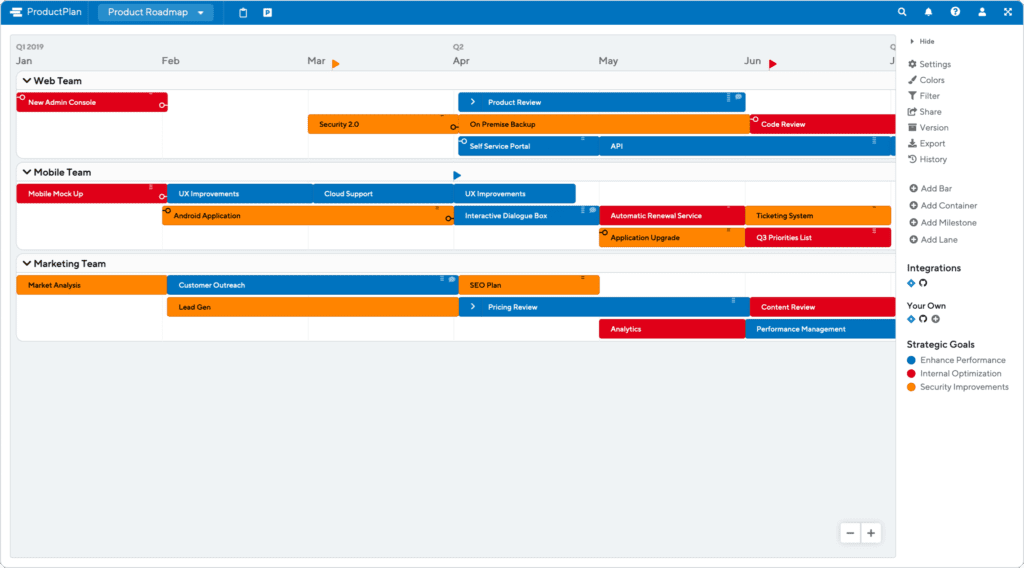What Is Roadmapping?
Roadmapping is the strategic process of determining the actions, steps, and resources needed to take the initiative from vision to reality.
In the case of product roadmapping, the process involves a product manager and her team. Together they determine all requirements to take the company’s product vision to a market-ready product. First, they pull together all their research. Then they lay out the product journey on a roadmap, breaking each component into themes, epics, stories, resources. Then they prioritize each item through ranking. Finally, they get to work, updating the roadmap often to ensure they continue to stay on the right track.
Roadmapping is Not Simply the Act of Creating a Roadmap
Roadmapping is often mistakenly understood as the act of drafting a roadmap. A critical output of roadmapping will indeed be a roadmap. But a roadmap is a high-level document that articulates the vision and strategic plan. The process involves much more strategic thinking and research than what will ultimately appear on the record.
The 3 Major Components of the Roadmapping Process
When you create a roadmap, you are establishing a path from an initiative’s vision to reality. The process should begin with a clear understanding of that vision and an ability to articulate it.
In the case of a company building a product, that vision might develop the most successful database application on the market.
With that vision well understood and agreed upon by the relevant stakeholders, the roadmapping process can begin. The process will include research, strategic planning, and coordinating with the organization.
1. Research
- Gain an understanding of the product’s users and buyers and their problems they face that the product can solve.
- Investigate the market and the competitive landscape.
- Explore the resources and budget the company has to commit to this initiative.
2. Strategic Planning
- Determine the major components (themes, epics, features, etc.) to solve problems for users.
- Determine a prioritization hierarchy. Rank all significant components for reaching a market-ready minimum viable product.
- Creating a development plan and assigning the appropriate resources.
3. Coordinating with the Organization
- Secure buy-in and support from executive stakeholders.
- Working with other teams to prepare whatever will be needed for your go-to-market plan. These teams include sales, support, professional services, marketing, and others.
Your roadmapping process might include additional steps and actions. But what’s important to understand is that this is a strategic process. That is to say, a process that helps you identify, organize, and then communicate all the steps to take you from product vision to a product ready for release.
Why the Roadmap Metaphor is Useful
In conclusion, this process will allow a product manager to set out a plan when executed correctly. This plan includes all the integral steps in the most strategically advantageous sequence, as well as a list of the right resources to bring a product’s vision to reality.
In this sense, a roadmap is a helpful metaphor. For instance, you can think of this strategic process as creating a map—a clear path to bring your product to market. Although you may have several stops along the way, it will help you stay on track throughout the process.
Every potential feature demands time and resources on your product roadmap. However, using a roadmap will help you stay on track. You can ask yourself whether greenlighting will move your product down the path, leading to a successful market release for every new item. In this way, it will be your crucial test for determining whether to say yes or no.
In other words, if an initiative will advance your product along the route from vision to reality, then it should be part of your plan. If it does not, then you can use a roadmap to communicate this objective decision.






